ECG:
Two Tests to Monitor Your Heart Health
An ECG, also known as an electrocardiogram, is a test that measures the electrical activity of your heart. It is a simple, non-invasive test that can be done in a doctor’s office or hospital.
During an ECG, small electrodes are placed on your chest, arms, and legs. The electrodes are connected to an ECG machine, which records the electrical signals from your heart. The ECG machine produces a graph called an electrocardiogram, which shows the heart’s electrical activity over time.
An ECG can be used to diagnose a variety of heart conditions, including:
- Arrhythmias (abnormal heart rhythms)
- Heart attack
- Heart failure
- Enlarged heart
- Pericarditis (inflammation of the lining around the heart)

What is an ECHO?
An ECHO, also known as an echocardiogram, is a test that uses ultrasound to image the heart. Ultrasound is a high-frequency sound wave that can be used to create images of internal organs.
During an ECHO, a transducer is placed on your chest. The transducer sends out ultrasound waves, which bounce off your heart and back to the transducer. The transducer converts the ultrasound waves into electrical signals, which are then processed by an ECHO machine. The ECHO machine creates images of your heart, which can be viewed on a monitor.
An ECHO can be used to diagnose a variety of heart conditions, including:
- Heart valve defects
- Congenital heart defects
- Enlarged heart
- Heart failure
- Cardiomyopathy (disease of the heart muscle)

Certified Dentist
Our certified dentists have the knowledge and experience to keep your teeth and gums healthy.

New Technology
Dentistry has come a long way over the years, with advancements in technology reshaping.

Pathology Service
When it comes to healthcare, accurate and timely diagnoses are the foundation of effective.
